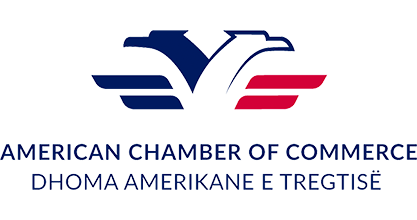Sub-legislative acts of the Income Tax Law have captured the attention of experts in the American Chamber of Commerce. They have engaged in discussions to make necessary amendments that enhance the practicality and clarity of the guidance provided. Through detailed comments on each section of the Guidance, the aim is to ensure that the guidance is clear and leaves no room for misinterpretation during tax audits. The goal is to provide practical and easily understandable guidance for businesses.
Comments processed by the Chamber’s experts have targeted employment relationships, treatment and accounting of expenses, financial relationships with non-resident employees, accurate profit calculation when double taxation agreements are in place, as well as depreciation and losses calculations during the work process.
This advocacy for Sub-Legislative Acts follows extensive work on the Income Tax Law itself. The American Chamber of Commerce has actively participated in the formulation of a new income tax law, aligning it with international standards. This new law is intended to bring about an effective restructuring of the tax system in Albania and provide the necessary mechanisms to combat informality and ensure fairness for individuals, regardless of their registration status.
Members of AmCham have played an integral role by contributing concrete comments and specific suggestions concerning the Draft Guidance and Annexes. Their input is aimed at improving the correct implementation of these documents. The comments have sought to clarify key areas, such as the definition of foreign tax entities and their financial relationships, addressing the ambiguity that taxpayers have faced.
Additionally, there have been interventions to provide clear guidelines for the treatment of income from employment, especially in cases involving non-resident employees. The guidance now specifies how wages are to be treated and taxed. Comments on the guidance have aimed to shed light on how source taxation will be applied to non-residents, as well as how individual taxpayers will be treated for the taxes they will pay.
Another significant point of concern has been the accounting of deductible expenses in the construction sector. Given the substantial changes witnessed in the construction and real estate industry in recent years, these changes have led to diverse transactions among landowners, builders, and investors. The absence of clear provisions in tax law has left room for interpretation, particularly because legal entities prepare financial statements in accordance with accounting laws and either National or International Financial Reporting Standards.
Moreover, an important area of focus has been the clarification, within the guidance, of expenses related to accommodation and food for employees assigned to projects away from their usual place of residence. This expense accounting has also been addressed to ensure clarity.
Members of the American Chamber of Commerce have provided numerous comments on the section of the guidance pertaining to financial rental income, adhering to both international and national accounting standards. Businesses in the hydrocarbon and gas sector have also sought clarification regarding their activities through guidance documents.
In summary, the Chamber has actively lobbied for the formulation of the Income Tax Law and its associated guidance documents, with a strong emphasis on aligning them with international and national accounting standards. These efforts reflect the Chamber’s keen interest in ensuring the effective implementation of income taxation regulations in Albania, which significantly impact Albanian taxpayers.

